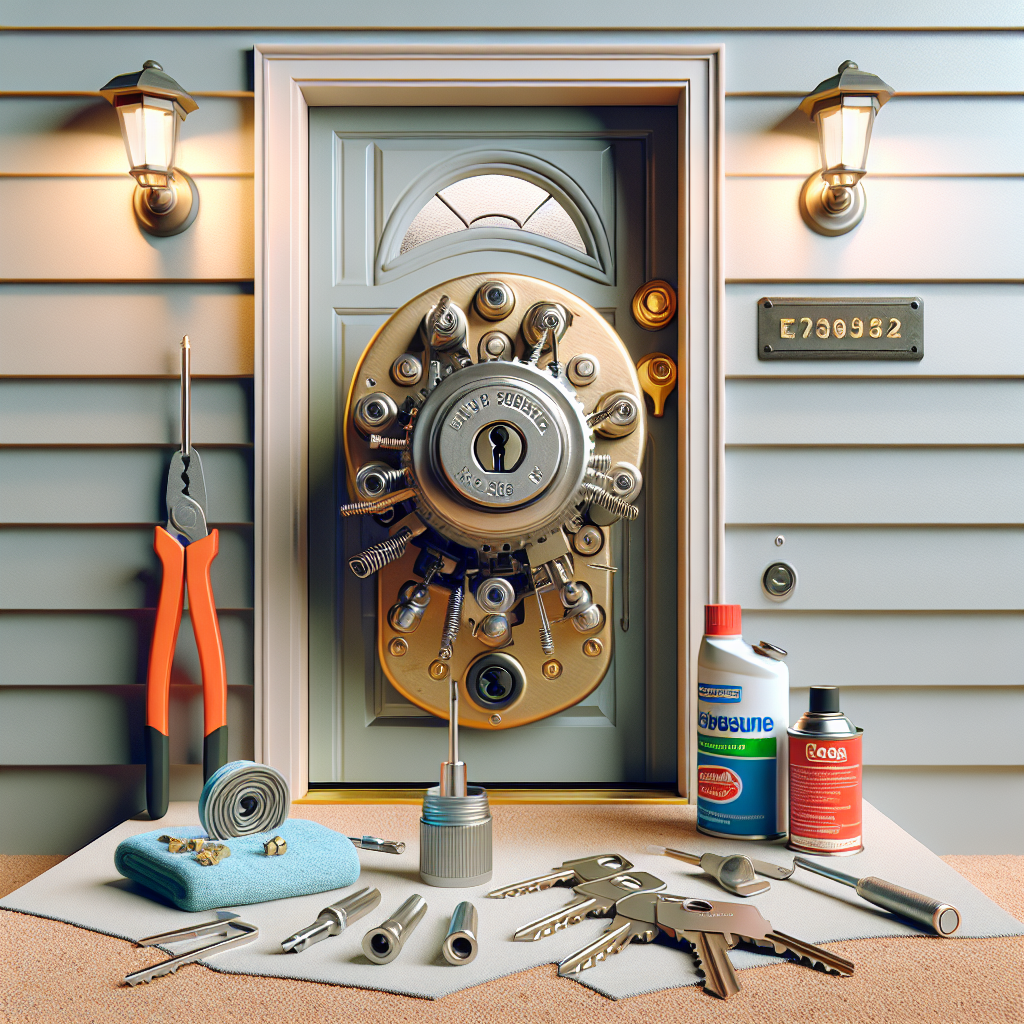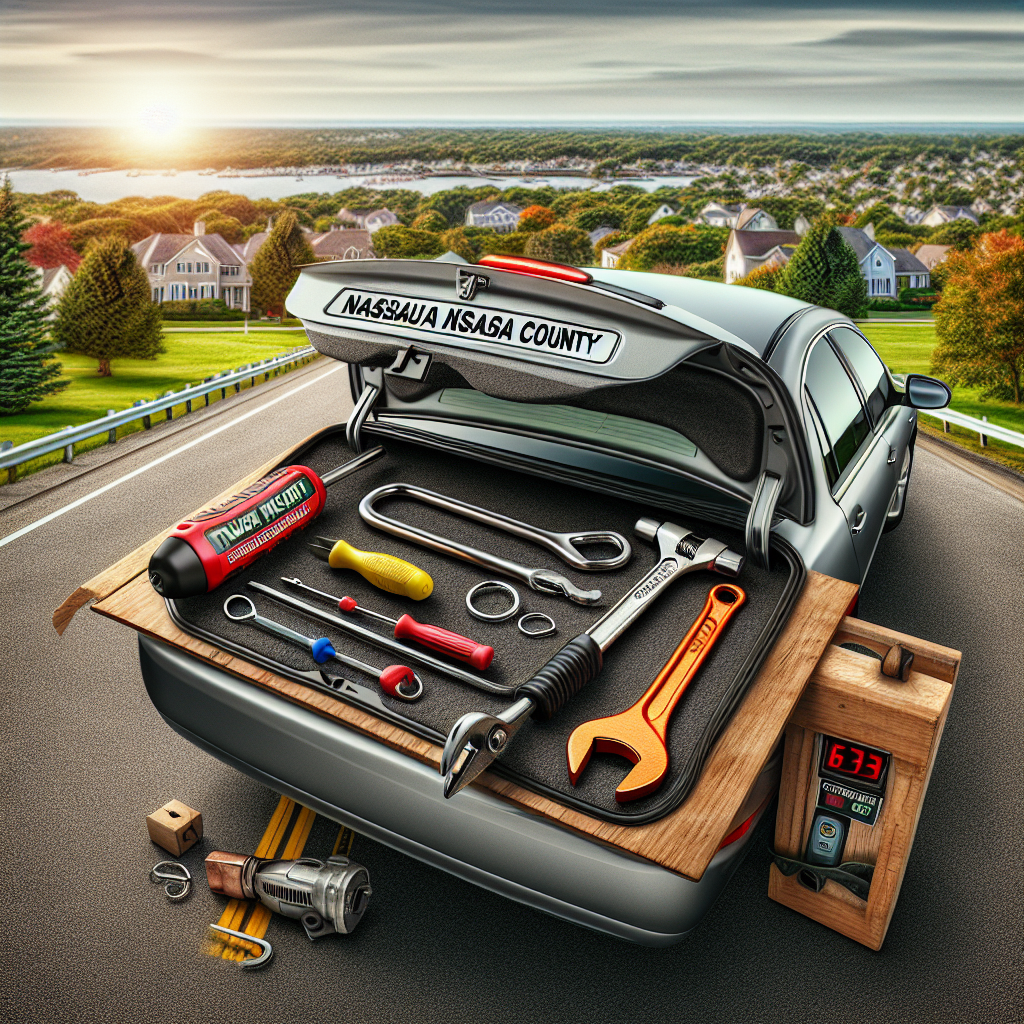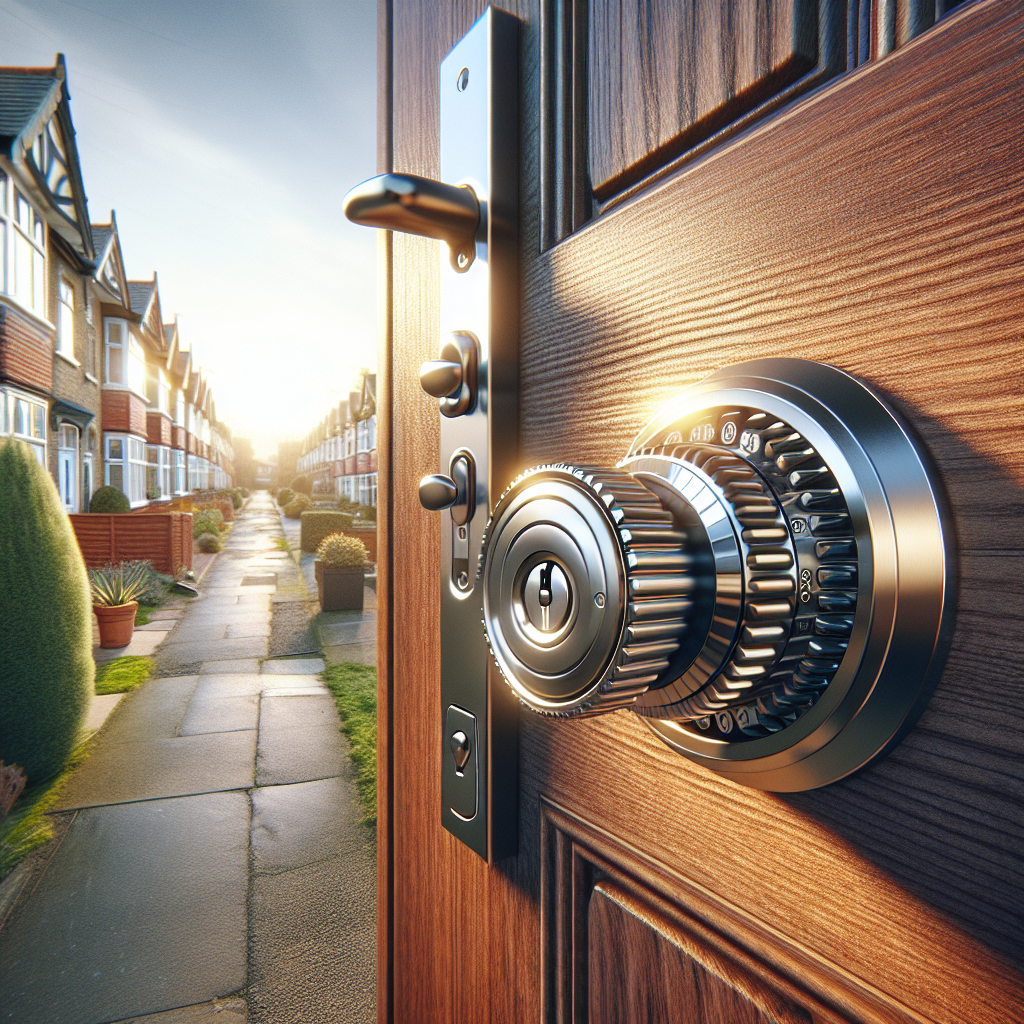Maintaining the integrity and functionality of home locks is more than just a matter of security; it is an often-overlooked aspect of home maintenance that can significantly affect daily life in Hempstead. The unique wear and tear experienced by residential locks due to Hempstead’s coastal climate, with its salty air and fluctuating humidity levels, calls for residents to adopt a proactive approach to lock care. Rust and corrosion, common adversaries of metal components, can rapidly degrade a lock’s mechanism, leading to difficult-to-turn keys or lock failure which could inadvertently lock homeowners in or out, causing tremendous inconvenience and even safety concerns.
As we delve further into the intricate world of home lock maintenance, it’s paramount to highlight the forthcoming key takeaways that will be discussed. These will serve as a guide to extend the life and enhance the performance of your home’s first line of defense against intrusions. Proper cleaning techniques, lubrication recommendations tailored for our Hempstead climate, and the timely replacement of worn-out lock parts are among the critical points that will be covered. Moreover, understanding when to call in a professional locksmith versus undertaking a DIY approach can make all the difference in maintaining both the efficacy and warranty of your locking mechanisms. Stay tuned as we unlock the secrets to keeping your home secure and your locks functioning smoothly.
Key Takeaways
1. Regularly Clean Your Locks: It is vital to regularly clean your locks to prevent the accumulation of dust, dirt, and grime, which can impede the lock’s function. Use a mild soap and water solution to gently clean the exterior hardware. Avoid using harsh chemicals or abrasive cleaners that could damage the lock’s finish or internal components.
2. Lubricate Lock Mechanisms: Lubrication is key to maintaining a smooth-operating lock mechanism. Use a graphite or Teflon-based lubricant specifically designed for locks. Apply lubricant sparingly to the keyway and moving parts once or twice a year, or whenever the lock begins to feel sticky or stiff.
3. Inspect and Tighten Hardware: Over time, the screws and bolts that hold your lockset in place may become loose due to usage and vibrations. Periodic inspections every few months can prevent issues. Tighten any loose screws or hardware to ensure the lock is secure and operates correctly.
4. Duplicate Keys Carefully: Poorly cut or worn keys can damage lock pins and tumblers, leading to malfunction. Always have keys duplicated by a reputable locksmith and replace keys that show signs of wear. Avoid overburdening your keychain, as excess weight can also wear out the lock and key over time.
5. Address Issues Promptly: If you notice any problems with your lock, such as difficulty locking or unlocking, a sticking key, or a loose doorknob or handle, address the issue immediately. Delaying repairs can lead to complete lock failure and compromise your home’s security. In such cases, consult a professional locksmith who can diagnose and fix the problem efficiently.
How Do You Properly Maintain Your Home Locks in Hempstead?
Cleaning Your Locks Regularly
Maintaining home locks in Hempstead involves regular cleaning to prevent a buildup of dirt and grime which can impair function. Utilize a mild soap and water solution or a designated lock cleaner to wipe down the external surfaces. Be cautious not to use abrasive cleaners or excessive water that could damage the lock mechanisms. For the interior components, a blast of compressed air can dislodge accumulated debris.
Lubricating the Lock Mechanisms
Applying a suitable lubricant to the moving parts of a lock can ensure smooth operation and prolong its lifespan. Avoid petroleum-based products as they can attract dust. Instead, opt for a graphite or Teflon-based lubricant specially formulated for locks. Apply sparingly and operate the lock several times to distribute the lubricant evenly.
Correct Key Usage and Handling
Proper key use is essential for maintaining lock integrity. Avoid using excessive force when turning the key within the lock, as this can bend the key or damage the lock’s internal components. Ensure that your keys are kept clean and free from debris. If a key is bent or shows signs of wear, have it replaced to prevent it from breaking off in the lock.
Checking the Door Alignment
Door alignment plays a critical role in lock maintenance. A misaligned door can put extra stress on the lock, leading to damage over time. Regularly inspect and adjust the hinges and strike plate of your doors to ensure they align properly with the lock bolt or latch. This prevents unnecessary strain and prolongs the life of the lock.
Inspecting and Tightening Hardware
Periodically check the screws and hardware associated with your home locks. Loose hardware can compromise the security and functionality of your locks. Use a screwdriver to tighten any loose screws, paying particular attention to the lockset, strike plate, and door hinges. If screws continue to loosen, it might be necessary to replace worn hardware or fill in the holes with a stabilizing filler before re-screwing.
Rust Prevention and Treatment
In the Hempstead climate, rust can be a significant enemy to your locks. To prevent rust, keep moisture levels at a minimum by ensuring proper door and home insulation. If rust does occur, address it promptly by using a rust remover recommended for locksets. After removing the rust, apply a protective coating to prevent future occurrences.
Professional Lock Servicing
While many aspects of lock maintenance can be handled personally, yearly professional servicing is recommended. A locksmith can disassemble the lock, clean internal components that are not accessible at home, identify wear and tear, and replace necessary parts. Professional servicing ensures that your locks function optimally and provide maximum security for your home.
Upgrading Your Locks
The evolution of lock technology means newer models can offer enhanced security features. Consider upgrading your locks if they are outdated, especially if you’ve experienced a break-in or if your neighborhood has seen a rise in crime. Modern locks can provide stronger protections, such as smart lock capabilities, which allow for keyless entry and can be monitored and controlled via smartphone.
Is It Important to Follow a Lock Maintenance Guide?
- Establish a routine cleaning schedule for your locks to avoid build-up of harmful debris.
- Use only lock-specific lubricants to ensure the mechanisms continue to operate smoothly.
- Handle keys with care and replace any that are worn or damaged.
- Regularly inspect your doors for proper alignment to prevent unnecessary lock strain.
- Keep all associated hardware tight and in good repair to ensure lock stability.
- Be proactive in rust prevention and treatment to avoid lock deterioration.
- Seek the expertise of a professional locksmith for annual maintenance checks and complex issues.
- Consider upgrading your lock systems to ones with modern security features for enhanced home safety.
How often should I perform maintenance on my home locks in Hempstead?
In Hempstead, it’s advisable to check and perform basic maintenance on your home locks at least once a year. However, if you notice any issues such as sticking or difficulty turning the key, address these concerns promptly.
What type of lubricant should I use for my locks and why?
It’s best to use a dry lubricant, such as graphite powder, for lock maintenance, as it won’t attract dirt and debris that can clog the lock mechanism.
Can harsh weather in Hempstead affect my lock’s performance?
Yes, extreme weather conditions in Hempstead, like cold and dampness, can cause locks to freeze or become stiff. Regular maintenance helps prevent these issues.
Is it necessary to hire a professional locksmith for maintenance?
While basic lock maintenance can be done by most homeowners, for complex issues or servicing high-security locks, it’s recommended to hire a professional locksmith in Hempstead.
How do I know if my lock is already too worn to maintain?
If your key no longer smoothly operates the lock, or there are visible signs of wear and tear, it may be time to replace the lock rather than continuing maintenance.
Are electronic or smart locks maintenance-free?
No, even electronic or smart locks require periodic maintenance to ensure their electronic components and battery contacts remain in good working order.
What should I do if my key breaks off in the lock?
If a key breaks off in the lock, it’s usually best to call a locksmith to remove the broken piece without damaging the lock. Afterward, lubrication and key replacement might be needed.
Can I use WD-40 to maintain my home locks?
WD-40 should not be used for long-term maintenance; it can gum up the internals of the lock over time. Stick to dry lubricants like graphite powder for the best results.
What are the signs that indicate I need to clean my locks?
Difficulty turning the key, the key sticking, or a harsh grinding noise are all indicators that the lock may need cleaning and lubrication.
How can I prevent lock corrosion?
Using a proper dry lubricant and occasionally wiping down the exterior of the lock to remove debris and moisture can prevent corrosion in the humid Hempstead climate.
Final Thoughts on Home Lock Maintenance in Hempstead
Maintaining the locks in your Hempstead home is an essential part of home security and upkeep. Regularly checking and caring for your locks not only ensures smooth operation but can also extend their lifespan, saving you time and money in the long run. With the changing seasons and the unique weather patterns in Hempstead, it becomes even more vital to pay attention to the maintenance of your locks to prevent common issues such as freezing or corrosion.
Engaging with a professional locksmith for advice or service can be beneficial, particularly when dealing with advanced lock systems or when facing perplexing lock-related problems. We hope that the best practices outlined in the FAQs provide a solid foundation for you to keep your home secure and your locks functioning correctly. Remember, a little preventive maintenance now can help avoid major inconveniences and costly repairs in the future.







